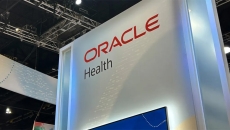Mike Miliard
AEquity aims to improve training for healthcare machine-learning algorithms by assessing the accuracy and fairness of the data they're fed.
The new event, scheduled for Sept. 18-19 in Chicago, will focus on high-level insights for the C-suite. HIMSSCast will be simulcasting from the show with the Straight Outta Health IT podcast, whose host Christopher Kunney joins us for a preview.
The reimagined ambulatory electronic health record system is designed to offer artificial intelligence capabilities that help with data-driven clinical decision support and reduce burdensome documentation, the company says.
The goal is to fine-tune new technology that "elevates safety and quality while being a catalyst for growth through innovation," says the health system's chief clinical officer.
While some say the executive order is too broad, others hope that by streamlining approvals and setting development standards it will "accelerate AI adoption in healthcare at a time when the industry has never needed it more."
Developed at Children's Hospital of Eastern Ontario, the innovative tool can scan EHRs and spot data that might identify kids with undiagnosed or rare conditions. It helps refer them for genetic testing sooner, giving them more personalized care.
Earlier this month in Brooklyn, HIMSS informatics leader Rob Havasy joined us for a discussion about the excitement and challenges he sees as health systems scale up their adoption and deployment of new AI tools.
The aim is to build an interconnected ecosystem of tools – AI-enabled video and analytics, two-way radio comms, mass notification technologies – to keep staff and patients safe at New York's largest health system.
At the HIMSS AI in Healthcare Forum in Brooklyn next month, keynote speaker Tom Lawry will offer some no-nonsense perspective on the steps health systems need to take to make the most of their artificial intelligence investments.
The American Hospital Association, EHR Association, Premier, WEDI and ATA have weighed in on HHS' request for comment about digital health tools for Medicare beneficiaries, and on the current state of interoperability and health IT infrastructure.










